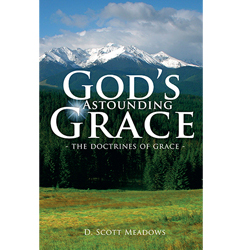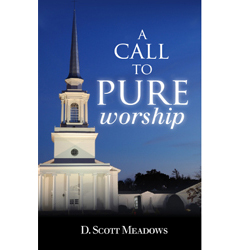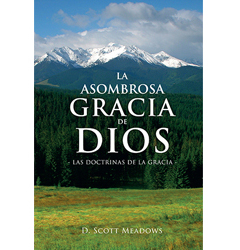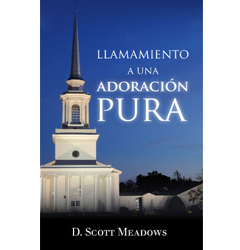

The Law-Gospel Distinction and Psalm 119
D. Scott Meadows
The law-gospel distinction is a critically important doctrine for interpreting Scripture properly. Embedded in the text of Scripture itself, its more widespread understanding and appreciation came especially through Martin Luther (1483-1546). He wrote,
Distinguishing between the law and the gospel is the highest art in Christendom, one
[that] every person who values the name Christian ought to recognize, know, and
possess. Where this is lacking, it is not possible to tell who is a Christian and who is a
pagan . . . . That much is at stake in this distinction (The Distinction Between the Law
and the Gospel, A Sermon by Martin Luther, January 1, 1532).
How then can we describe this distinction? William Perkins (1558-1602), an early and extremely influential Puritan, gave this good explanation.
The law in general, is that part of God’s Word, which commands things just, honest,
and godly . . . It commands perfect obedience, both inward in thought and affection,
and outward in speech and action. . . . It binds to the curse and punishment everyone
that fails in the least duty thereof, though but once, and that in thought only. . . . The
sum of the moral law is propound[ed] in the Decalogue or Ten Commandments, which
many can repeat, but few do understand. That we may further conceive aright the
moral law, we must make a difference between it and the gospel, for the gospel is that
part of the Word which promises righteousness and life everlasting to all that believe in
Christ (The Works of William Perkins, 1:243–44).
The law requires righteousness from us. The gospel announces righteousness as a gift of grace alone received by faith alone in Christ alone. The law condemns us for our sins. The gospel assures us of forgiveness in Christ. The law exposes our spiritual death through sin. It is through the gospel that we have eternal life in Christ.
This grand law-gospel distinction may be observed in Psalm 119. While reading the psalm, it must be always kept in mind. Psalm 119 is the longest of all the psalms with its 176 verses. It is an acrostic poem in Hebrew with eight verses for each of the 22 letters of the alphabet in order (e.g., aleph, beth, gimel, daleth, etc.). Nearly every verse contains one word of the ten Hebrew words it uses to refer to Scripture. These ten words are translated with English words like “precepts,” “commandments,” “law,” “righteousness,” and “statutes.” While some instances of the ten words might arguably be understood of God’s Word generally—the whole inspired text—the predominant sense seems to be the “law” of God more narrowly conceived as moral directives and prohibitions. A reading of the first eight-verse section this (see Psa 119.1-8), along with the rest of the psalm.
With this insight that the moral law of God is mostly in view throughout Psalm 119, one is struck by an evident contrast. On the one hand, the psalmist prays earnestly for grace to enable and further his sanctification (experiential) which is, in substance, his personal conformity in heart and deed to the standard of God’s moral law. On the other hand, the psalmist praises that law, describing it as objective and utterly powerless in itself to change him. In this light, consider these verses afresh.
O that my ways were directed
To keep thy statutes! (5).
With my whole heart have I sought thee:
O let me not wander from thy commandments (10).
Deal bountifully with thy servant, that I may live,
And keep thy word (17).
My soul cleaveth unto the dust:
Quicken thou me according to thy word (25).
Incline my heart unto thy testimonies,
And not to covetousness (36).
And so forth. As I embrace the psalm by faith, I see that there are many verses in it that express the idea one way or another that the law is the holy standard of righteousness, and that in myself I have no power even to grasp all its glorious truth, much less to fulfill and obey it. These sentiments are never far in Psalm 119 from confessions that the gracious Lord Himself is my indispensable and perpetual need. I need the divine Savior constantly on account of my deep moral pollution, my innumerable failures to keep His law consistently from the heart, and my countless and daily transgressions against it. Therefore I pray like the psalmist. Hungering and thirsting for righteousness, I know that I am blessed and shall be filled (Matt 5.6).
Now I challenge you to go back through the entirety of Psalm 119 with this law-gospel distinction in mind. Appropriate this blessed psalm for yourself. Appreciate the beautiful truths of the law and the gospel that are woven into its very warp and woof. Your meditations, blessed by our gracious Savior Jesus Christ, will be sweet. Amen. Ω
All Rights Reserved. Used with permission. No part of this article may be used or reproduced in any manner whatsoever or translated without written permission.
The following books by D. Scott Meadows are available at Trinity Book Service and Cristianismo Histórico:
Ebook: A Call to Pure Worship | D. Scott Meadows
Ebook: God’s Astounding Grace | D. Scott Meadows




